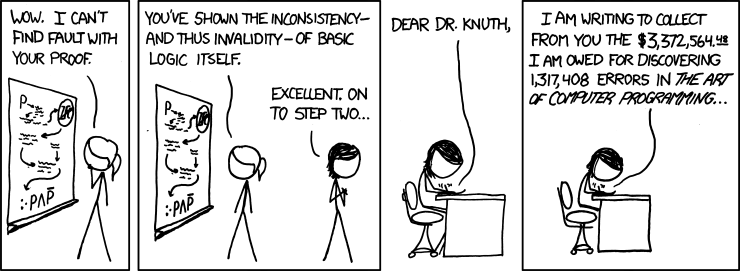Mr. Dictator
A Chain-Smoking Fox
Of course logic can be trusted. The problem is, no one has bothered to read the human brain's instruction manual.
Its printed, in its entirety, about 1000 yards in our navels. I suggest any confused soul start reading when they get the chance.
Its printed, in its entirety, about 1000 yards in our navels. I suggest any confused soul start reading when they get the chance.


 ...
... 


